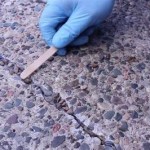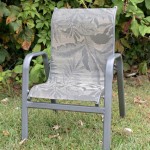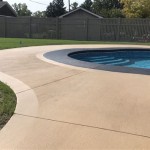Best Cleaner for Patio Pavers: A Guide to Choosing the Right Product
Patio pavers offer a beautiful and durable surface for outdoor spaces, but over time, they can become stained, discolored, and covered in grime. Regular cleaning is essential to maintain their aesthetic appeal and prevent damage. With various cleaning products available on the market, selecting the best cleaner for patio pavers can feel overwhelming. This guide will delve into the key factors to consider when making a decision and provide recommendations for different types of pavers and stains.
Understanding Paver Types and Stains
The first step in choosing the right cleaner is identifying the type of paver you have. Patio pavers are typically made from materials like concrete, brick, stone, or travertine. Each material has specific cleaning requirements. If your pavers are made from porous materials like concrete or brick, they are more susceptible to staining than non-porous materials like stone or travertine. The types of stains you encounter will also influence the cleaning solution you need. Common paver stains include:
- Organic Stains: These are caused by substances like mildew, algae, moss, and mold, often appearing as dark patches or streaks.
- Mineral Stains: These result from deposits of minerals like calcium, iron, and magnesium, often found in hard water. They can create white, yellowish, or reddish discoloration.
- Oil and Grease Stains: These are caused by spills or leaks from vehicles, cooking oils, or other greasy substances.
- Rust Stains: These form from metal objects left on the pavers, producing reddish-brown stains.
- Paint Stains: Accidental paint spills or splatters can leave stubborn stains on pavers.
Understanding the type of paver and the stain you need to remove will help you narrow down your cleaning product choices.
Key Factors to Consider When Choosing a Paver Cleaner
Once you have assessed your paver type and stains, consider these key factors to ensure you select the most effective and safe cleaner:
pH Level
The pH level of a cleaner is crucial, especially for porous pavers. Acidic cleaners (low pH) can damage the material over time, especially for concrete and brick. Alkaline cleaners (high pH) are generally safer for most pavers but may not be effective against all stains. Look for cleaners with a neutral pH (around 7) for a safer option.
Active Ingredients
The active ingredients in a cleaner determine its cleaning power. Look for products containing biodegradable surfactants (chemicals that reduce surface tension) to break down dirt and grime. Other effective ingredients include bleach for removing organic stains, citric acid for dissolving mineral deposits, and enzymatic cleaners for breaking down organic matter.
Safety
Safety is paramount when applying any cleaner. Choose products that are non-toxic and environmentally friendly, particularly if you have pets or children. Read the product label carefully and follow application instructions for safe use. Always wear protective gear like gloves and eye protection during cleaning.
Effectiveness
The effectiveness of a cleaner depends on its ability to remove the specific type of stain. For organic stains, bleach or enzymatic cleaners are often effective. Mineral stains may require a cleaner containing citric acid. Oil stains may need a degreasing agent. Read product descriptions carefully to determine the types of stains each cleaner is designed to address.
Ease of Use
Consider the ease of application and rinse-off when choosing a cleaner. Some cleaners require a lengthy soaking time, while others can be applied and rinsed quickly. Choose a cleaner that fits your schedule and preferences.
Recommended Cleaners for Different Pavers and Stains
Here are recommendations based on the types of pavers and stains:
Concrete and Brick Pavers
For these porous materials, look for cleaners with a neutral pH and biodegradable surfactants. Products containing citric acid can also be effective for removing mineral stains. Avoid using overly acidic cleaners or harsh chemicals like muriatic acid, which can damage the material. Consider cleaners specifically designed for concrete pavers, often formulated for stain removal and restoration.
Stone and Travertine Pavers
These non-porous materials are more resistant to staining. Neutral pH cleaners with surfactants are suitable for general cleaning. For tougher stains, you may need a stronger cleaner containing citric acid or bleach. Avoid cleaners that contain abrasive particles, as these can scratch the surface.
Organic Stains
For organic stains like mildew, algae, or moss, use a cleaner containing bleach or an enzymatic cleaner. These products effectively kill microorganisms and break down organic matter. Follow application instructions carefully, as bleach can be harmful to plants and pets. Consider using a pressure washer after cleaning for a thorough and safe clean.
Mineral Stains
Mineral stains require a cleaner containing citric acid, which dissolves mineral deposits. Look for products specifically formulated to remove water stains and mineral deposits. Apply the cleaner as directed and allow sufficient time for it to penetrate the stain. You may need to repeat the process for stubborn stains.
Oil and Grease Stains
For oil and grease stains, use a degreasing cleaner or a product containing a solvent like kerosene. Apply the cleaner to the stain and allow it to sit for a few minutes before scrubbing with a stiff brush. Rinse thoroughly with water to remove all residue. Be careful not to use too much solvent, as it can damage the pavers.
Rust Stains
Rust stains can be tricky to remove. Use a cleaner specifically designed for rust removal, often containing a combination of acids and surfactants. Apply the cleaner as directed, allow it to sit for a few minutes, and scrub with a stiff brush. Rinse thoroughly with water to remove all residue. You may need to repeat the process for stubborn stains.
Remember to check the product label for specific instructions and safety precautions before using any cleaner. Always test the cleaner in an inconspicuous area first to ensure it does not damage the pavers.

How To Clean Patio Pavers At Home Advantage Pro Services

Artisan 1 Gal Paver Cleaner

Radonseal Bricktastic Brick Paver Cleaner 1 Gal

Power Washing Patio Pavers Wiseguys Pro Wash

Learn How To Clean Pavers For Your Patio

How To Pressure Wash Patio Pavers Using Surface Cleaner Attachment

Bricktastic Brick Paver Cleaner

How To Best Clean And Maintain Paver Concrete Patios

How To Clean Pavers Its Importance Methods Process

Cleaning Patio Pavers Tips And Techniques Sequoia Stonescapes
See Also








